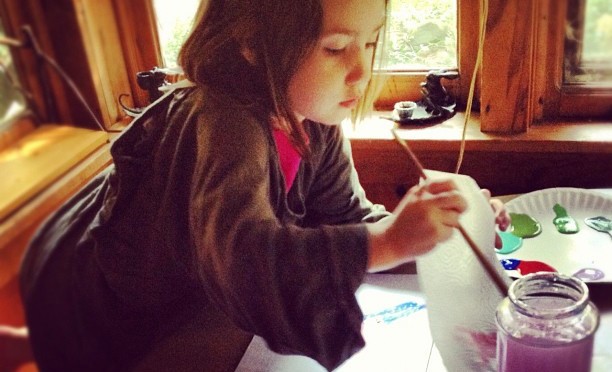When I was young, I was always drawing. I would watch Commander Mark and draw along, making all sorts of pictures of spaceships and alien planets. I would make up my own comic book characters, sketch them out, write back stories, and imagine whole universes. I’ve always seen myself as creative. As someone who creatively colored outside of the lines. Always trying to stretch my, and others’ expectations. When my creativity turned to writing, I really wanted to push the boundaries. But something always pushed back.
John O’Keefe writes about how we are born, coloring outside of the lines, because the lines don’t mean to us what they mean to our teachers. My own development as a writer was forged through the fires of conflict with a grad school professor of poetry who gave strict parameters between which we could operate. The lines she erected were taken by me as a strict “no creativity” policy.
These lines that our teachers use to restrict us, do so out of compassion and love, but they don’t make us “better”. And they aren’t GOD’s lines. This is the crux of the creative spirit as O’Keefe writes, because Jesus’s lines are simply love of GOD and our neighbor.
Our intimate moments of creativity are precious. Whether they are creative expression in art or in some other realm.
A second, incredibly forming moment, occurred much earlier. It was in seventh grade Algebra. Our teacher, a famously dour woman with an incredible temper handed out a mimeographed worksheet of problems. I began at the top and read those purple-colored instructions, which suggested we underline the correct answer. Well, I’m not one for underlining, as it is hard to pick out on the page what is underlined, and so I quickly circled each correct answer. Then I moved to the bottom half of the sheet. I saw about 8-10 problems squished into two columns. The directions indicated we draw a line from one side to the other, connecting the right solution with the proper problem. Well, these columns were too smooshed together to make any sense of lines drawn from one side to the other. So I drew a short line to the left of each problem in the left column, numbered each of the answers in the right column and set about matching the proper solutions to each problem. When I handed in the worksheet, I felt good. I knew I had gotten each problem right and I had made the teacher’s life easier. What a good student!
When she passed back the worksheets the following day, there were no marks on the page save one that looked like this:
She then went over each problem with the class and gave each solution. I did have them all correct. Bewildered, I approached her desk after class and asked why I received such a low score, if I had gotten all of the solutions correct. She said that she took off two points in each section for disobeying the rules. I suggested that was a pretty steep penalty, meaning that I failed the assignment, despite demonstrating mastery of the subject. She reasserted that these are the rules and I should shut up about it. That my disregard for the rules does lead to failure of completing the assignment.
A later interaction with the same teacher, this time in high school, which involved my use of my mother’s car and (legally) parking in the staff lot demonstrated her grouchy adherence to the rules as defined by her.
Few moments in school have formed me as much as this one. I resolved to prove her wrong. I resolved to show that there is more to the world than rules, and more important lessons than to stay within arbitrary lines. Because I had stayed between the spirit of the lines, as I properly marked and matched the answers—just in my own way. And in a way that was intending to make her life better. I was hoping to make her smile, to recognize my self-expression and self-giving. Instead she failed me for it. Of course, at the end of the semester, those four points didn’t cost me an A. I still excelled. But I refused to learn the lesson she intended to teach me. A lesson that makes her rules above the ones I inherited. She, like a Pharisee, was enforcing extraneous rules, and I was following a broader, more loving set.
Just two rules. Rules about love and compassion and giving. Rules that make all of these other rules petty and unimportant. Perhaps my seventh grade Algebra teacher did teach me something. Just not what she demanded I learn.



Leave a Reply